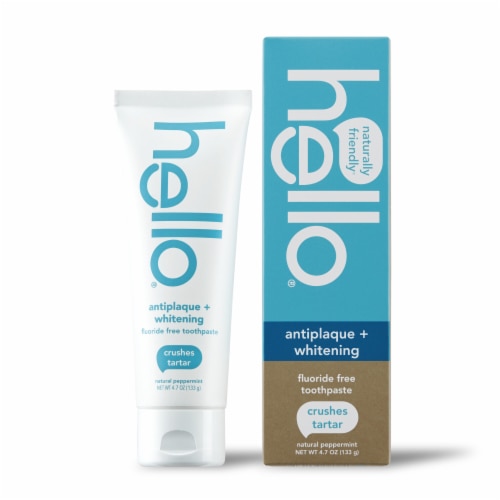[vc_row][vc_column][vc_column_text]It seemed like a good plan at the time. I skipped making dinner and had popcorn instead, a tactic I avail myself upon approximately once a week. All was well until I absentmindedly bit down on an unpopped kernel. I didn’t even know it at the time, but when I was brushing my teeth later that evening I noticed my broken crown and put two and two together. The next day I was making an appointment with my dentist for a replacement crown—needless to say it turned out it was a very expensive popcorn dinner.

Lesson learned: We should be taking care of our mouth like it’s a $100,000 instrument, rare and precious. If the eyes are the gateway to your soul, the mouth is the gateway to your overall health. Not properly taking care of your teeth and gums can lead to a variety of health problems, including loss of teeth, gum disease, cavities and infections.
Oral health is also linked to whole-body health. For example, if an infection is present in your mouth, your bloodstream can carry the bacteria to other areas of your body, leading to other health concerns like heart disease and stroke. I have routinely abused my teeth, taking them for granted. No more.
Top Healthy Teeth Mistakes
Here are eight things dentists
do not want you to with your mouth.
1. Using your teeth as a tool
Does it seem as if you can never find a pair of scissors when you really need them? Although your teeth make handy tools, using them to open packages or bottles isn't recommended. Biting into these objects can crack your teeth, increasing the risk of a tooth fracture. Unless the crack forms in the front of a tooth, you may not even be aware that there's a problem until your tooth breaks one day. Whenever you hold something in your teeth or bite open a package, you're risking injury to your jaw or a cracked tooth. Take your time with your task, and don't use your teeth as a third hand, a pair of scissors, or a handy wrench.
2. Eating problematic foods
Chewing on anything hard has the potential to damage your vulnerable teeth. Hard candy, stale bread, fruits with pits and wings and ribs are all potentially problem foods. Popcorn kernels, which I learned the hard way (no pun intended), are equivalent to chewing on pebbles.
3. Sucking on lemons
Yes, you can make lemonade when life gives you lemons, but avoid sucking on lemons at all costs. Why? Lemons may be a boon for the immune system, but they have a high acid content that has the potential to damage your enamel—the coating of defense that protects the dentin under layer.
4. Crunching on ice
Do you love to chomp on ice cubes? That pits crystal against crystal (both ice and tooth enamel are forms of crystal) which is clear invitation to imminent destruction. If you don't want to risk a broken tooth or filling, the ADA recommends drinking through a straw or taking your drinks without ice to help kick the habit.
5. Forgetting about flossing
Flossing is not a luxury, floss-haters. In fact, it’s even more important than brushing. If you think you can get by with only the occasion flossing session, think again. Generally, brushing and flossing work together to preserve dental health. At least 35 percent of teeth surfaces will not be cleaned if one only brushes and does not floss.
6. Foregoing dental rinse
I used to think
mouthwash was just to improve your breath, but there’s more to mouthwash than meets the eye (or nose). According to the
American Dental Association, there are two types of mouth rinse: cosmetic and therapeutic. Cosmetic mouth rinses may temporarily control bad breath and leave behind a pleasant taste but have no chemical or biological application beyond their temporary benefit. Think of it this way: If a product doesn’t kill bacteria associated with bad breath, then its benefit is solely cosmetic.
Therapeutic mouth rinses, on the other hand, have active ingredients intended to reduce conditions like bad breath, gingivitis, plaque, and tooth decay. The brushing, flossing, rinsing trifecta is king. That final, therapeutic rinse removes all the lingering food debris and gives your mouth an extra layer or protection against tooth decay.
7. Abusing drugs
Certain drugs, such as meth, cocaine and ecstasy, are no friend to your mouth.
Methamphetamine, which is highly acidic and attacks tooth enamel, can cause severe tooth decay in a very short time. The term ‘meth mouth’ is used to describe the extensive damage typically caused by this drug. Other side effects include dry mouth, teeth grinding and jaw clenching.
Cocaine is anathema to your teeth. Users sometimes rub cocaine over their gums, causing ulceration of gums and the underlying bone. When mixed with saliva, cocaine becomes extremely acidic. This erodes tooth enamel and exposes the underlying dentine to decay-causing bacteria. Cocaine also causes dry mouth, which further increases the risk of tooth decay. Cocaine can increase tooth grinding, which further wears the teeth.
Ecstasy (MDMA), also called the love drug, can be harsh on your mouth. Side effects of ecstasy include tooth grinding, jaw clenching and dry mouth.
8. Not addressing dry mouth
Certain medications, such as antianxiety drugs, antidepressants, decongestants and antihistamines can dry up your saliva production. Saliva is important for mouth health; a lack of saliva can lead to tooth decay. Saliva functions as a thin film over your teeth to protect against bacteria. Saliva acts to dislodge any food in your mouth that may feed the bacteria that cause tooth decay.
If you think a prescription medication is
causing your dry mouth, don’t just stop taking it. Talk to your healthcare provider first. You may be able to reduce the amount of medication, or there are a few medications that can be prescribed to increase saliva production.[/vc_column_text][/vc_column][/vc_row][vc_row][vc_column][vc_text_separator title="Featured Products" border_width="2"][vc_row_inner equal_height="yes" content_placement="middle" gap="35"][vc_column_inner width="1/3"][vc_single_image image="166662" img_size="full" alignment="center" onclick="custom_link" img_link_target="_blank" css=".vc_custom_1683319001386{padding-right: 7% !important;padding-left: 7% !important;}" link="https://www.vitacost.com/radius-vegan-peppermint-anywhere-floss"][/vc_column_inner][vc_column_inner width="1/3"][vc_single_image image="166661" img_size="full" alignment="center" onclick="custom_link" img_link_target="_blank" css=".vc_custom_1683319022223{padding-right: 7% !important;padding-left: 7% !important;}" link="https://www.vitacost.com/jason-powersmile-whitening-toothpaste-fluoride-free-powerful-peppermint"][/vc_column_inner][vc_column_inner width="1/3"][vc_single_image image="166663" img_size="full" alignment="center" onclick="custom_link" img_link_target="_blank" css=".vc_custom_1683319037361{padding-right: 7% !important;padding-left: 7% !important;}" link="https://www.vitacost.com/toms-of-maine-wicked-fresh-alcohol-free-natural-mouthwash"][/vc_column_inner][/vc_row_inner][/vc_column][/vc_row]
 Lesson learned: We should be taking care of our mouth like it’s a $100,000 instrument, rare and precious. If the eyes are the gateway to your soul, the mouth is the gateway to your overall health. Not properly taking care of your teeth and gums can lead to a variety of health problems, including loss of teeth, gum disease, cavities and infections.
Oral health is also linked to whole-body health. For example, if an infection is present in your mouth, your bloodstream can carry the bacteria to other areas of your body, leading to other health concerns like heart disease and stroke. I have routinely abused my teeth, taking them for granted. No more.
Lesson learned: We should be taking care of our mouth like it’s a $100,000 instrument, rare and precious. If the eyes are the gateway to your soul, the mouth is the gateway to your overall health. Not properly taking care of your teeth and gums can lead to a variety of health problems, including loss of teeth, gum disease, cavities and infections.
Oral health is also linked to whole-body health. For example, if an infection is present in your mouth, your bloodstream can carry the bacteria to other areas of your body, leading to other health concerns like heart disease and stroke. I have routinely abused my teeth, taking them for granted. No more.



